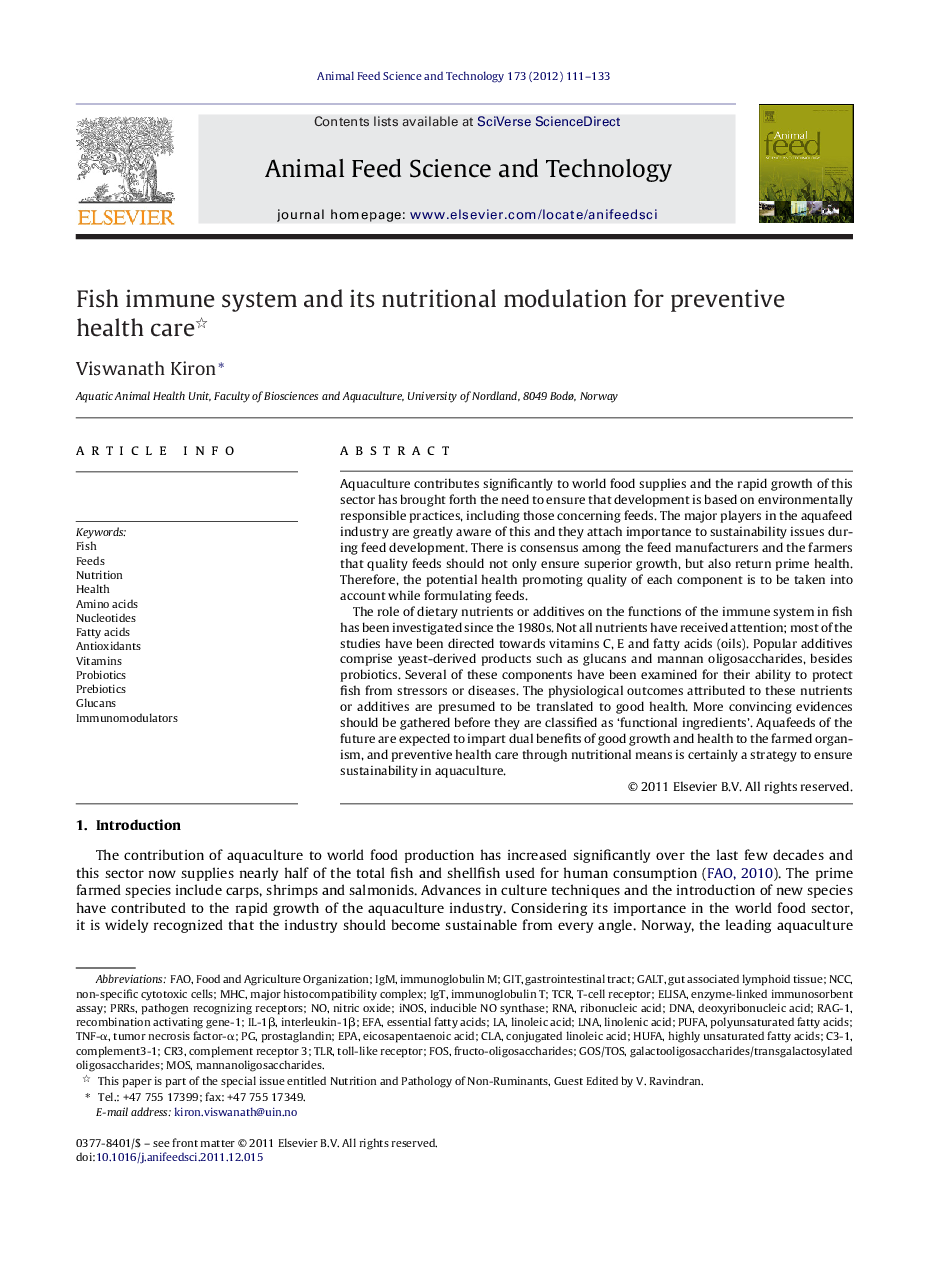| Article ID | Journal | Published Year | Pages | File Type |
|---|---|---|---|---|
| 2419864 | Animal Feed Science and Technology | 2012 | 23 Pages |
Aquaculture contributes significantly to world food supplies and the rapid growth of this sector has brought forth the need to ensure that development is based on environmentally responsible practices, including those concerning feeds. The major players in the aquafeed industry are greatly aware of this and they attach importance to sustainability issues during feed development. There is consensus among the feed manufacturers and the farmers that quality feeds should not only ensure superior growth, but also return prime health. Therefore, the potential health promoting quality of each component is to be taken into account while formulating feeds.The role of dietary nutrients or additives on the functions of the immune system in fish has been investigated since the 1980s. Not all nutrients have received attention; most of the studies have been directed towards vitamins C, E and fatty acids (oils). Popular additives comprise yeast-derived products such as glucans and mannan oligosaccharides, besides probiotics. Several of these components have been examined for their ability to protect fish from stressors or diseases. The physiological outcomes attributed to these nutrients or additives are presumed to be translated to good health. More convincing evidences should be gathered before they are classified as ‘functional ingredients’. Aquafeeds of the future are expected to impart dual benefits of good growth and health to the farmed organism, and preventive health care through nutritional means is certainly a strategy to ensure sustainability in aquaculture.
